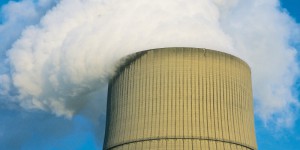The German Emissions Trading Authority (DEHSt) released preliminary numbers for energy-related and industrial emissions for 2015. While the emissions of the industry did not improve compared to earlier years, the ones of the energy companies have been reduced by 1.7 percent.

According to DEHSt the energy-related emissions in 2015 have been 332 million tons of carbon dioxide equivalents. This indicates a decline of 1.7 percent compared to 2014. A positive finding is the reduction of the emissions from fossil energy carriers, while power generation increased. The increased share of renewable energies in the electricity sector is largely responsible for this effect.
The emissions of energy-intensive industries could however not be reduced. With 123 million tons CO2 – equivalents, they are on a similar level as in the two years before. “Due to currently prevailing low CO2 – prices, necessary incentives for profound reductions are missing”, Maria Krautzberger, President of the German Environmental Agency said.
The entire emissions in the emission trading scheme went down to 456 million tons of CO2 – equivalents, a reduction of 6 million tons, or 1.2 percent respectively. This is due to the large share of Germany’s energy-related emissions in the emission trading scheme. They account for 73 percent, while the industrial emissions only have a share of 23 percent.
The German Environmental Agency estimated the total German greenhouse gas emissions for 2015 to be 908 million tons of CO2 – equivalents. Compared to the previous year they rose by almost 1 percent and only half of those emissions are part of the emissions trading scheme.



